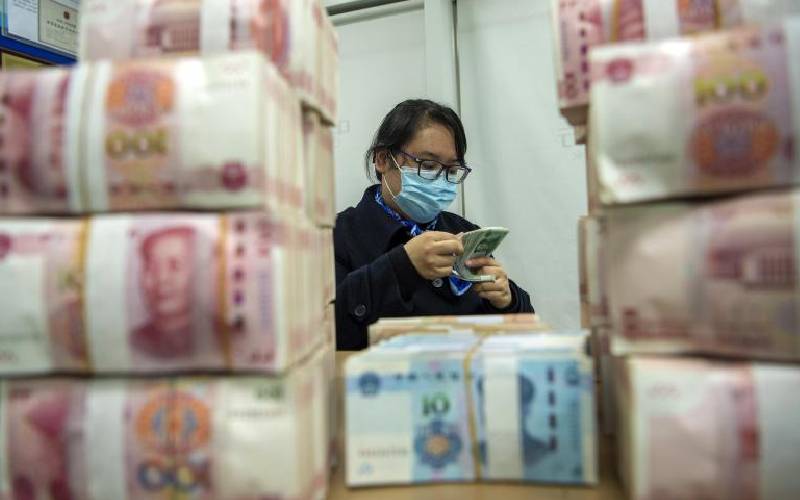×
The Standard e-Paper
Kenya’s Boldest Voice

A clerk counts renminbi banknotes at a bank outlet in Hai'an city in eastern China's Jiangsu province, Dec. 6, 2021. [Chinatopix Via AP]
Major central banks meet this week to assess risks from the new Omicron variant of the coronavirus even as they consider reducing emergency measures put in place nearly two years ago to fight the pandemic’s economic toll.







